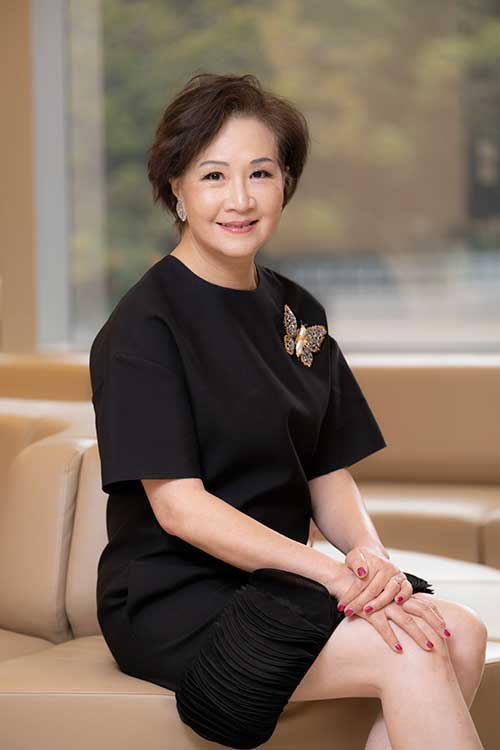
By Phoebe Ho
(The author is the Chief Executive Officer, Integrated Oncology Centress)
According to global cancer data, in 2018 the global cancer burden increased to 18.1 million cases and 9.6 million cancer deaths with almost half of new cancer cases and more than half of the cancer deaths being reported from Asia.[1] It is expected that Asia will have a surge of around 35% of cancer patients with an increase in the mortality rate of 40% by 2030.[2]
The battle against cancer is not easy. Besides coping with the psychological stress, the confusion to find professional help is also significant for the patient. A typical cancer treatment involves different specialties of medical professionals and patients usually have to seek treatment from multiple institutions or healthcare providers, which makes the cancer journey complicated. On top of this, cancer patients have other needs that go beyond cancer and its management, such as mental, emotional and social concerns. These vital needs differ in nature and severity across time.
Besides having a multidisciplinary team (MDT) to provide a comprehensive treatment plan for the patient, research also shows that that having a coordinated care system across the healthcare workforce is essential in determining the patient’s treatment experience and outcome. The workforce that will need to provide care to these patients consists of a wide range of caregivers from various professional backgrounds, professional approaches and all levels of care settings.
However, despite the growing realisation that contemporary cancer care should be responsive to people with complex needs, most cancer treatment modalities are still made available as separate or different units from other services or care providers. Besides this, accessing integrated cancer care is also a difficulty faced by many cancer patients as cancer, primary care and other specialist providers often have separate information systems and performance indicators.
This is a common practice observed in Asia as well, where getting access to cancer care in the region continues to be fragmented with diagnostics and treatments functioning as separate units. [3]
Adding to the conundrum of fragmented cancer care in Asia, rapid urbanization, shift to personalized healthcare solutions and an ageing population clearly calls for the need of an integrated approach to successfully manage the cancer burden in the region.
Integrated cancer care: A fresh perspective on managing Asia’s cancer burden
As part of a new era of focused healthcare operations, integrated care is a health care model of collaborative care provisions particularly for chronic conditions such as cancer. Integrated care also provides means to fulfil the gaps in Asia’s current fragmented healthcare operations.
Integrated cancer care provides a better approach to cancer care as it reduces the fragmentations of care encountered by patients. With origins in organizational and systems theory, there is no single definition of integrated care, but its key feature is the aim of improving results for a target population through strengthening coordination within and between healthcare organizations.
An integrated approach helps treat patient with surgery, chemotherapy, behavioral health services, nutritional support and other conventional tools, while also supporting their strength, stamina and quality of life with evidence-based therapies. This approach brings a group of healthcare professionals together in a formal, governed way to provide comprehensive, seamless cancer patient pathways that is not just a doctor’s decision but a whole team instead.
With development of sophisticated oncology technology and therapy, patients are able to achieve the best outcome in their cancer journey. This approach helps to integrate oncological treatment with a holistic concept where patients can access all requirements related to cancer care, from diagnostics to post cancer care in a seamless and coordinated way.
Integrated Oncology Centres (IOC), one of Asia’s first region-wide oncology network that was created in 2015, sees the need to reduce the cancer burden and fragmentation in treatment delivery in Asia. The organization, which now has seven oncology centres across Hong Kong, Philippines, Indonesia, Vietnam and Malaysia aims to increase accessibility to integrated cancer care in Asia.
IOC also provides multidisciplinary integrated oncology services such as diagnostics, surgery, radiation therapy, chemotherapy and post cancer care within its network of clinics and treatment centres. This coherent approach to cancer care puts patients in control of their cancer care journey while providing them with quality expertise, technology and treatment. By providing the right information, developing effective communications and empowering patients to take charge for their cancer journeys, IOC is able to positively impact their patients experience throughout their cancer journey.
In conclusion, cancer treatment is a collaborative effort that requires both the knowledge of various professionals and listening to patients as well to properly care and support them. It is important that integrated cancer care be developed and incorporated into addressing the ongoing needs of cancer patients within the healthcare resources. An integrated cancer care approach helps patients to better tolerate cancer treatments, reduce treatment delays or interruptions, have a larger say in their cancer care journey and most importantly, live a life of quality.
[1] https://www.uicc.org/news/global-cancer-data-globocan-2018
[2] https://www.weforum.org/agenda/2020/07/the-fight-against-cancer-in-asia-pacific-is-working-heres-why/






















